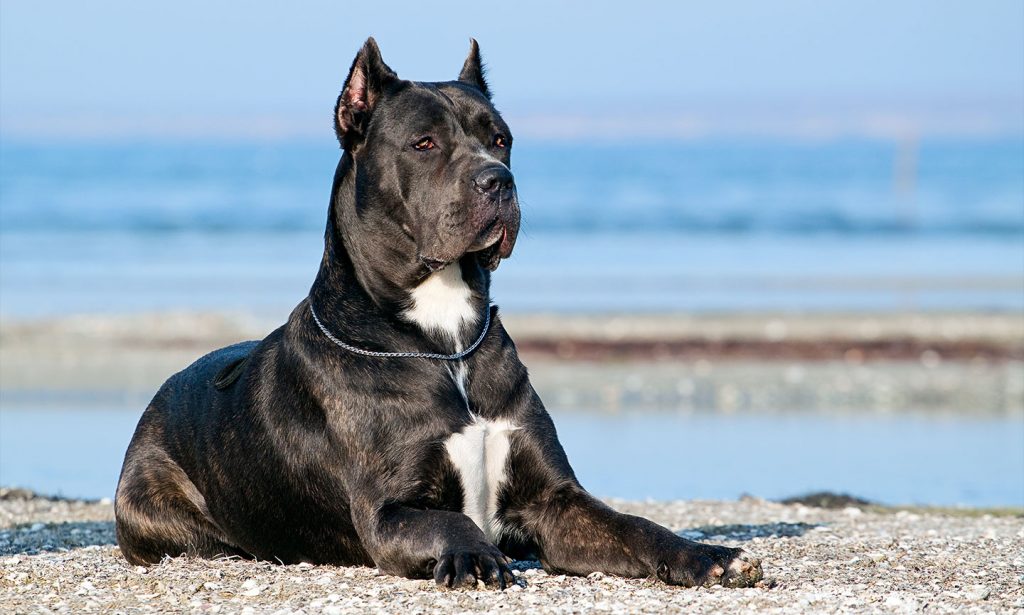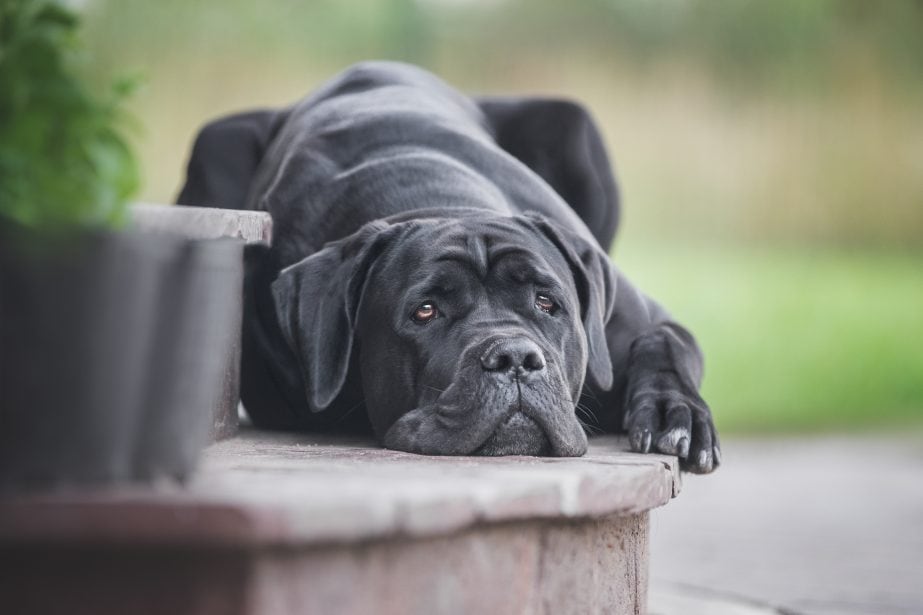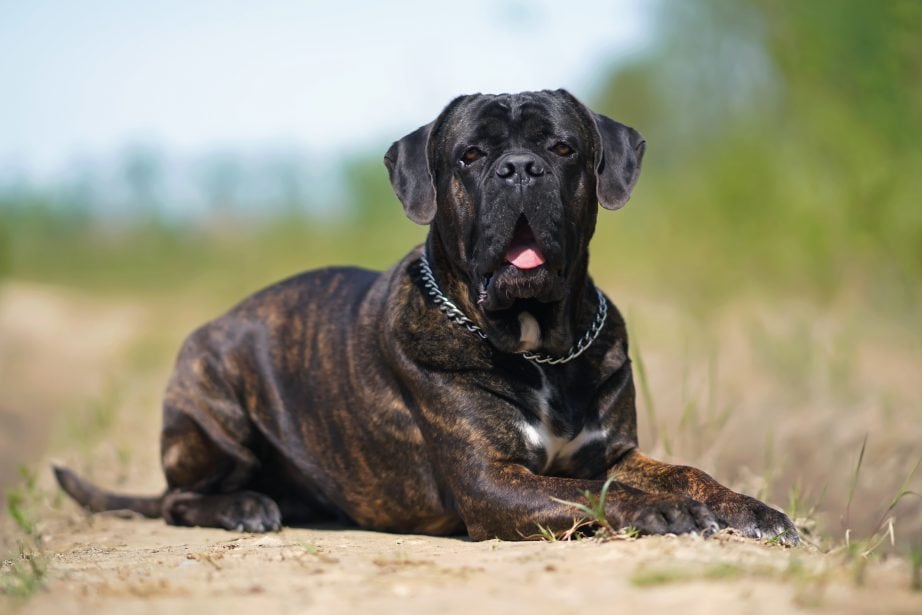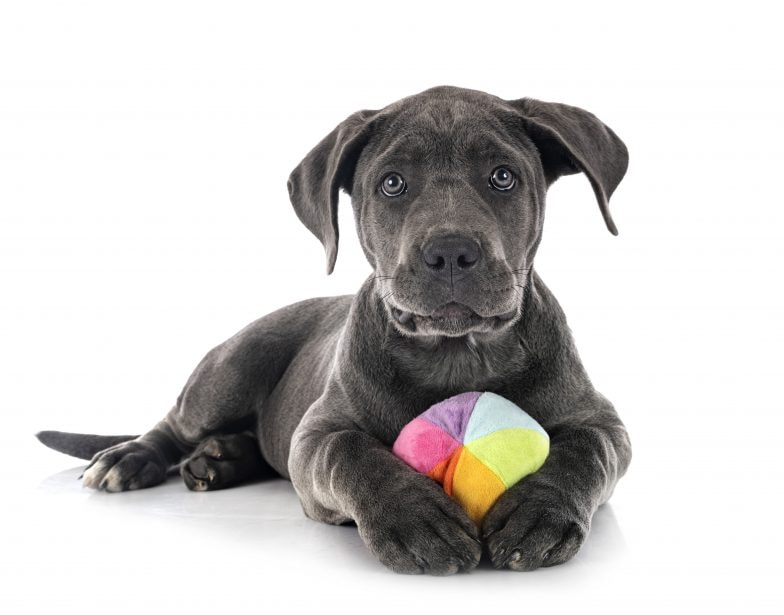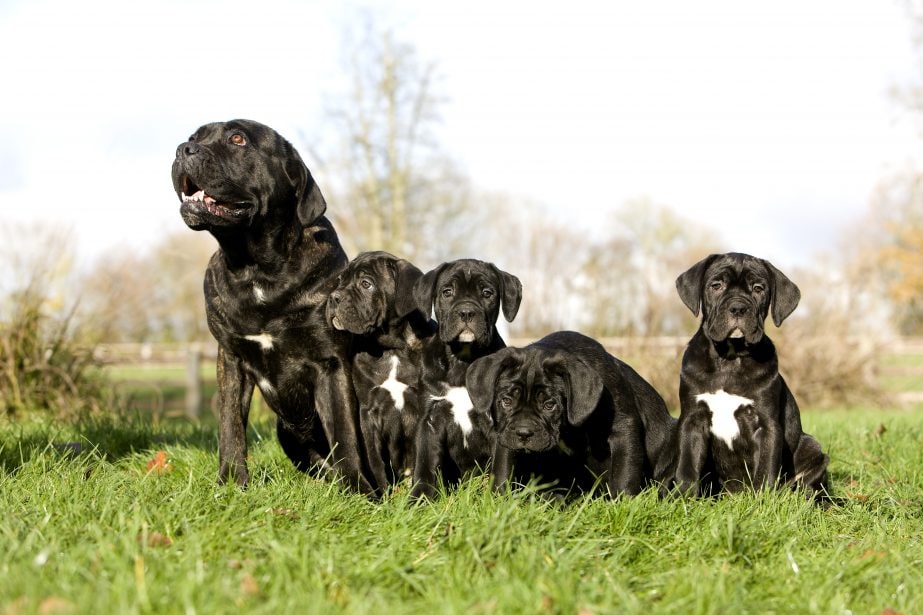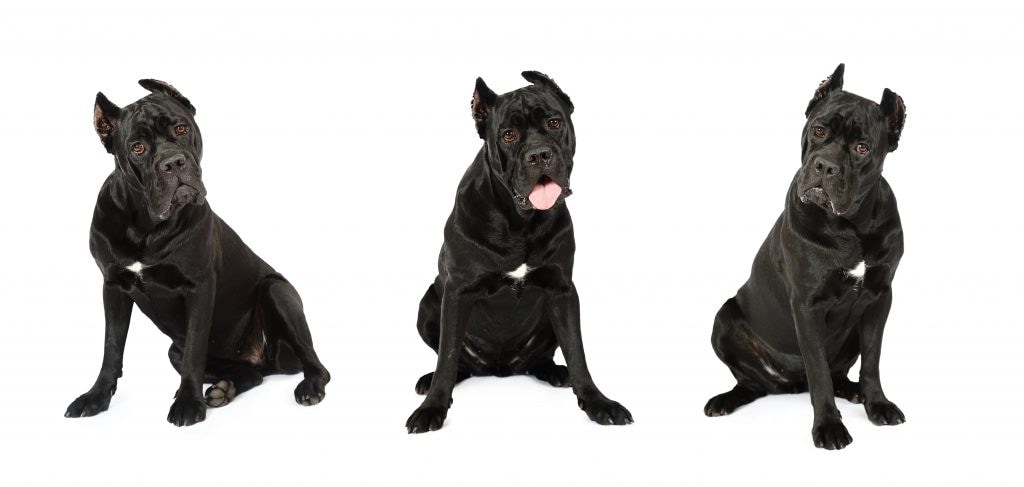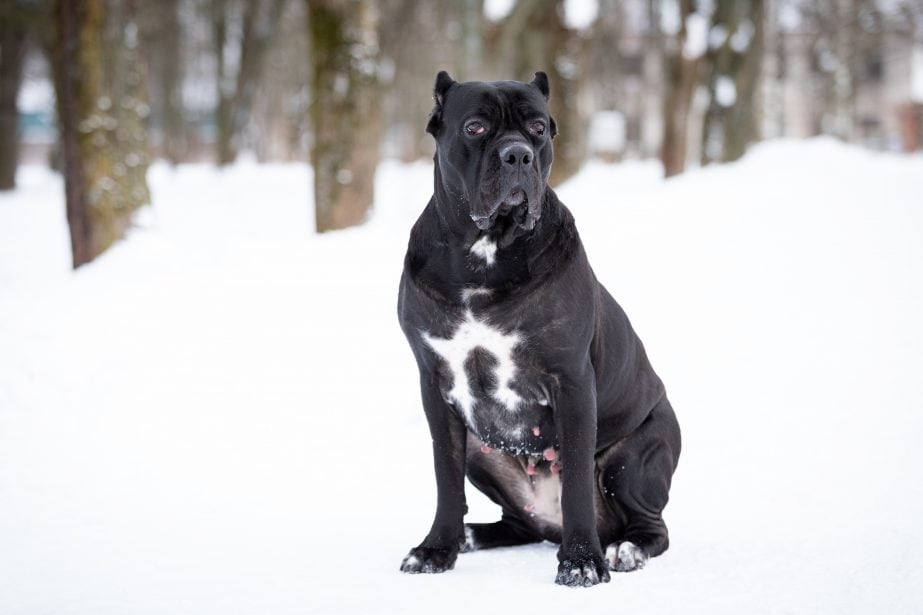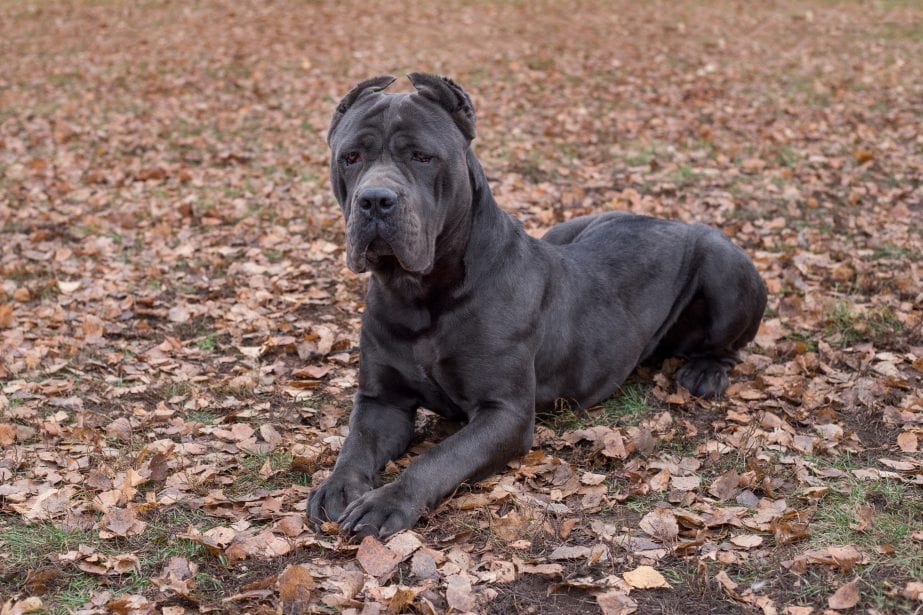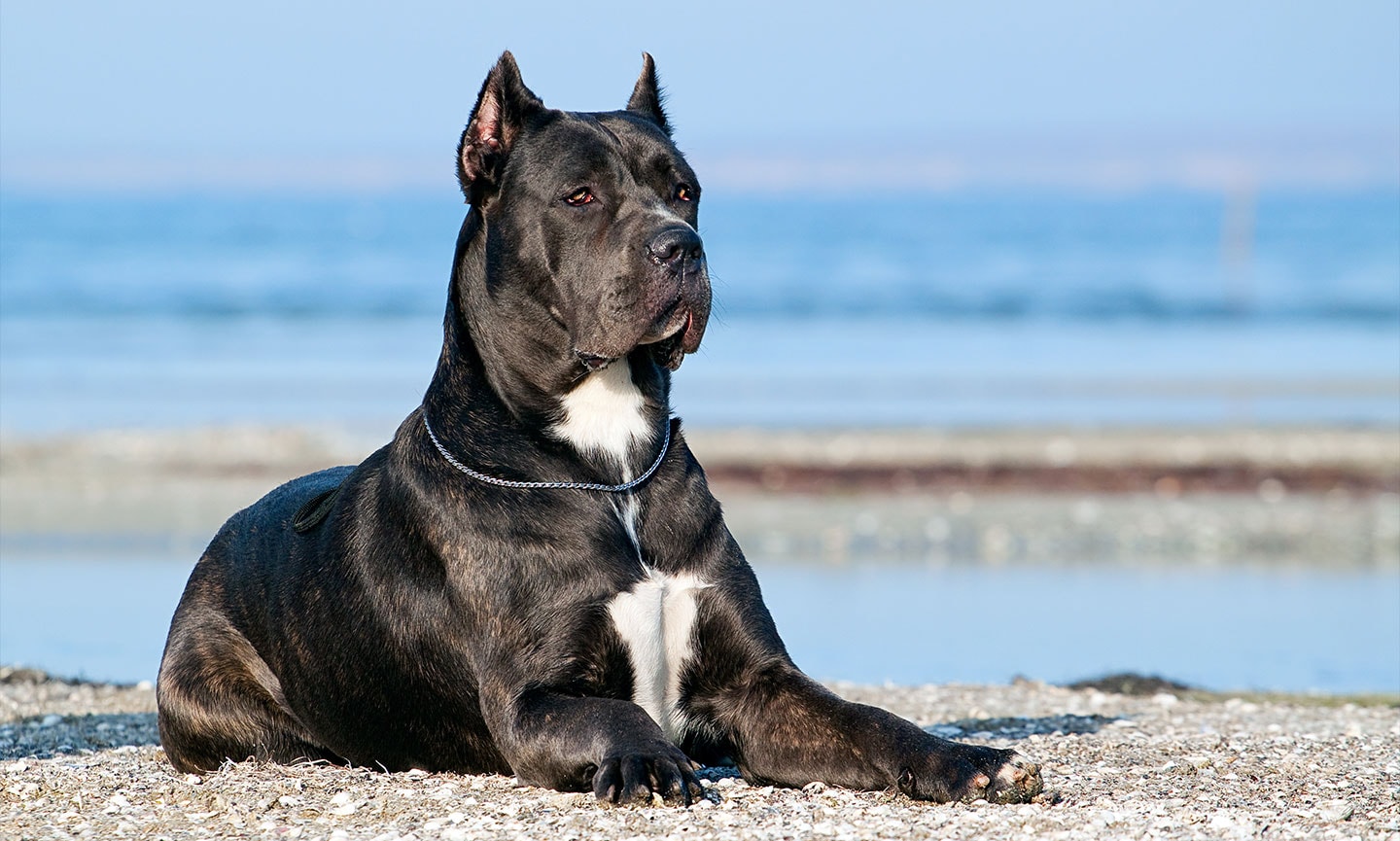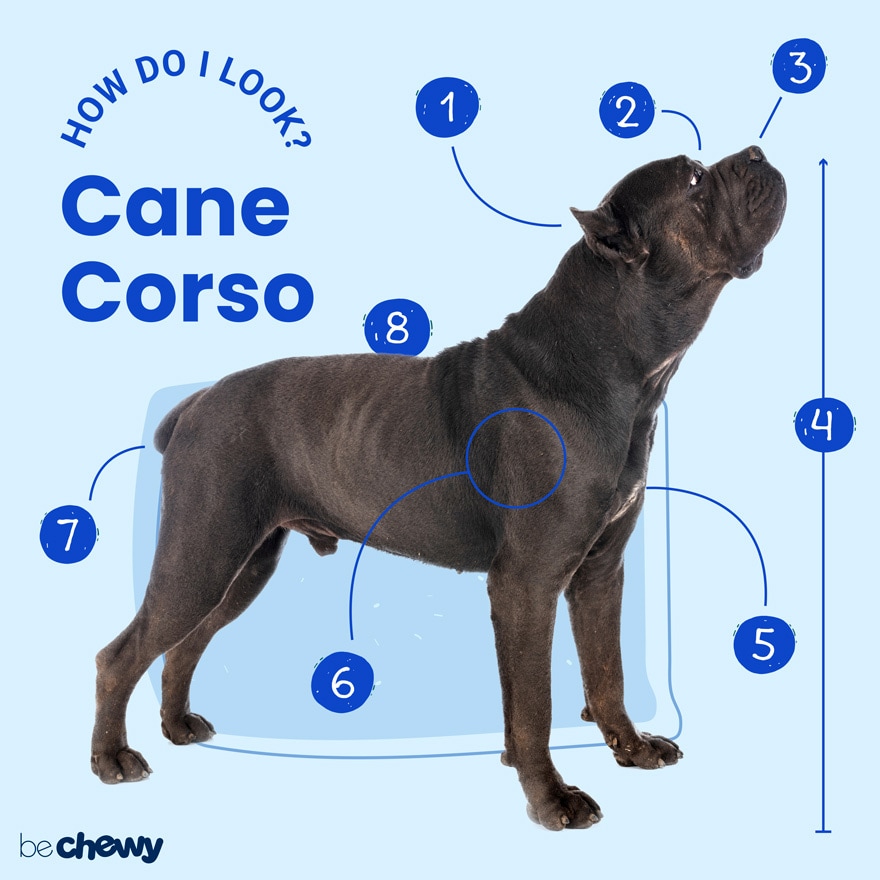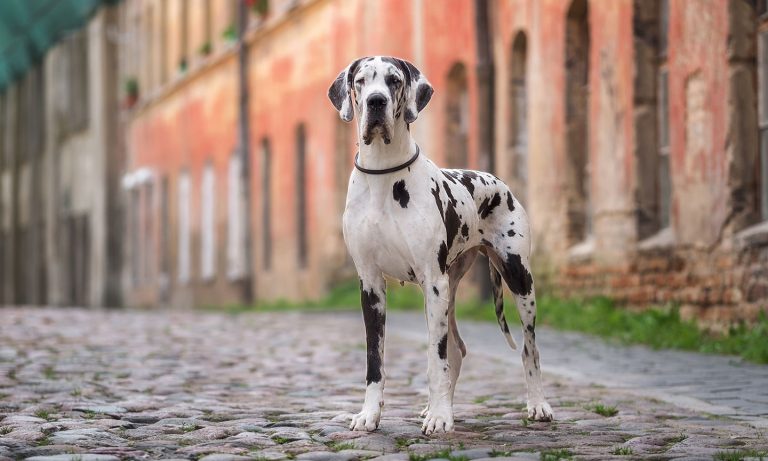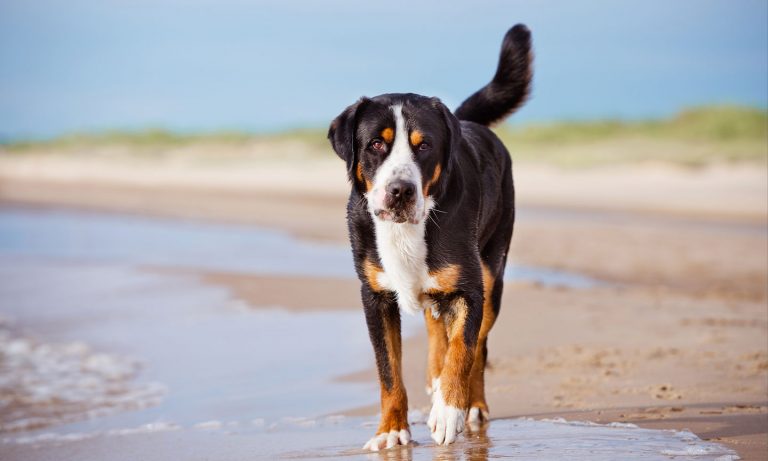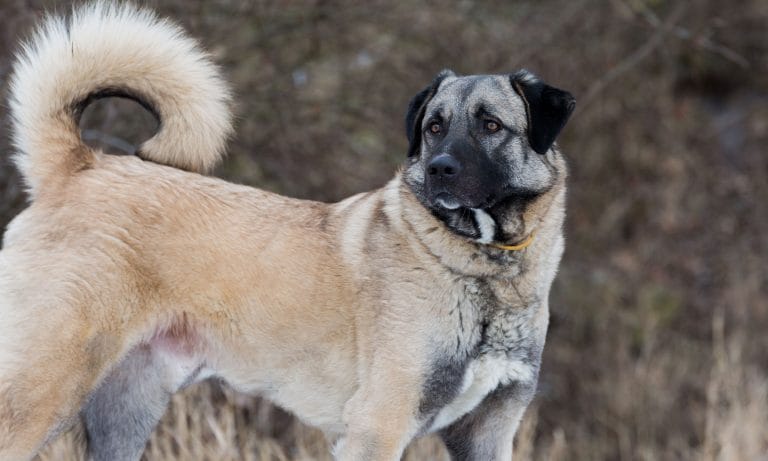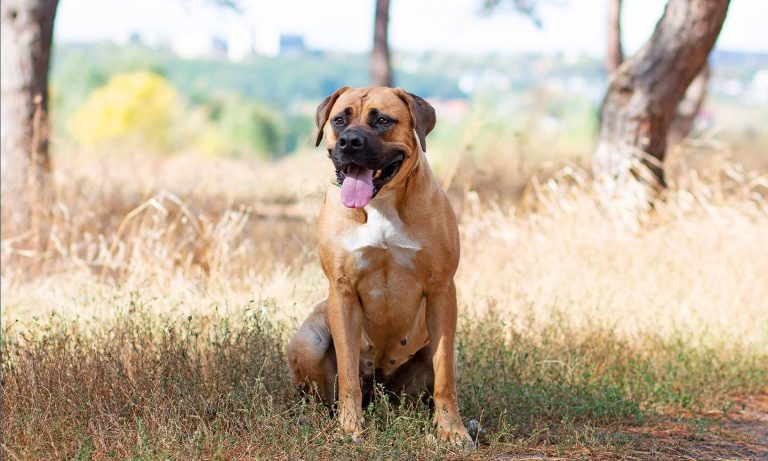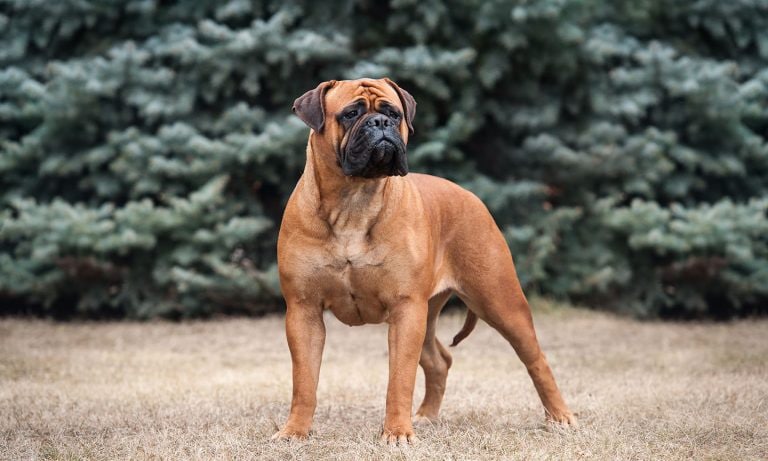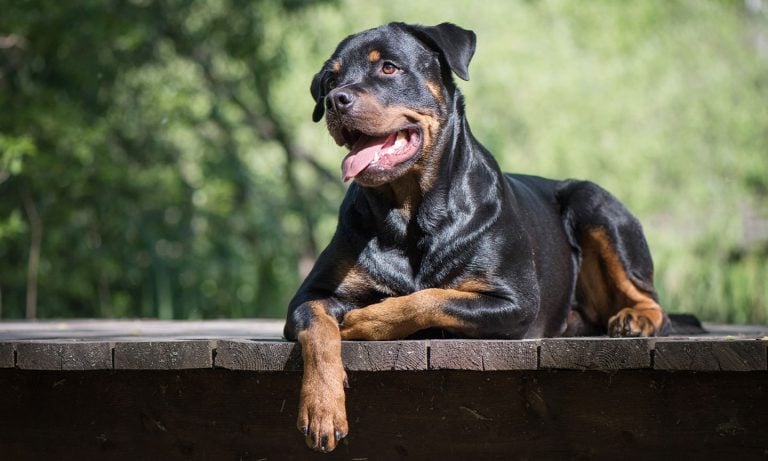You’ll definitely feel safer with a Cane Corso (KAH-neh KOR-so) around. This giant dog breed is fiercely loyal to the people they love—and often able to intimidate strangers with a single look. Yet despite their imposing appearance, these big dogs can be very affectionate with their own family. Proper socialization and training are a must for this highly driven, smart-yet-strong-willed breed, making the Cane Corso a good match for an experienced, assertive dog parent.
Breed Snapshot
Temperament:
Fiercely LoyalSmartA Bit BossyCoat Color:
BlackFawnGrayBrownRed
Best For
The loyal Cane Corso thrives on strong bonds and regular exercise. This Italian breed is best suited to an experienced dog parent committed to consistent training and socialization.
Cane Corso Temperament
You’ll never get bored with a Cane Corso around—you simply won’t have time for it. The training, socialization and exercise needs of this breed will keep you busy throughout their whole life. This is a working breed who was bred to be a guard dog, making them sensitive, serious and intensely loyal. With members of their own household, Cani Corsi (that’s the plural term for the breed) can be affectionate companions, but they’re also naturally alert to new people coming to the house and may react toward strangers—both two- and four-legged—if not properly trained and socialized.
Properly trained and socialized Cani Corsi will be calm and confident. They should ignore strangers and animals who pose no threat to themselves or their people. Thankfully, their high intelligence makes it easy to teach them the difference.
How to Care for a Cane Corso
Cani Corsi are low maintenance in the grooming department, which balances being fairly high maintenance where exercise and training are concerned. Their large size requires room to spread out, and their energy and intensity need plenty of fenced-in space for exercise.
Cane Corso Health
Cani Corsi have a life expectancy of 9 to 12 years, but they’re also prone to some health issues that can limit their lifespan and mobility. It’s good to know what those potential health problems are in advance, so you can keep them healthier, longer.
- Obesity: It’s important to maintain a healthy weight for all dogs, but with the already massive size of the Cane Corso, carrying extra weight will put added strain on the joints, leading to joint pain and mobility issues as they age. A proper diet that includes joint supplements and doesn’t overdo the calories is crucial, as is daily exercise.
- Hip Dysplasia: A skeletal condition common to large-breed dogs, hip dysplasia results in malformation of the ball and socket joint resulting in looseness. This causes lameness, pain and arthritis, which can severely impact your Corso’s ability to get around and affect their overall quality of life. There is no genetic screening test but dogs with this condition should not be bred as it can be inherited by their pups. Large-breed puppy dog food and proper joint care are a must for this breed.
- Bloat: The large, deep chests of the Cane Corso make them susceptible to bloat, which can trigger gastric dilatation and volvulus, or GDV, a potentially deadly condition where the stomach rotates and twists on itself. Feeding two or three smaller meals throughout the day and using a slow feeder bowl, which forces your dog to eat only a few pieces of food at a time, will help prevent this condition. It’s also important not to exercise your dog within an hour of eating, either before or after meals.
- Idiopathic Epilepsy: Epilepsy is a seizure disorder that typically starts between 6 months and 5 years of age. While it can be managed with medication, there’s no cure for this condition. That said, dogs with this condition can still lead a long and happy life. Idiopathic is a medical term for “no known cause,” but this condition is usually hereditary. There is a genetic screening test for dogs so be sure to ask your breeder.
- Eye Problems: Cani Corsi tend to be prone to a few eye problems, mostly pertaining to the eyelid. These include both entropion, in which the eyelid folds inward, and its opposite, ectropion, causing the lower lid to fold outward. Another common eyelid problem is cherry eye, when the pink, fleshy part of the corner of the eye becomes swollen and bulges outward. If you have any concerns about your pet’s eyes (such as discharge, squinting, cloudiness, bulging, redness, etc), please see your vet right away.
Cane Corso History
The Cane Corso traces its origin back thousands of years to a group of working breeds called mollosers, after an ancient Greek tribe known as the Molossi, who bred these big, Mastiff-type dogs to be guardians. After the Roman conquest and occupation of the Greek islands, the Romans brought these dogs back to Italy, where they bred them with native breeds, producing the ancestors of today’s Cane Corso and Neopolitan Mastiff dog breeds. The Romans originally used the Cane Corso as “pireferi,” which you might call some of the first military service dogs. In Roman warfare, these dogs carried flaming buckets of oil on their backs as they were sicced on enemy soldiers.
After the Roman Empire dissolved in the 5th century, this Italian breed was given somewhat less exciting jobs hunting wild boar, herding livestock and guarding farms. They fulfilled these roles across Italy until the mid-20th century, when two world wars, economic downturns and corporate farming practices rendered this breed virtually extinct.
Fortunately, some surviving Cani Corsi were discovered in the 1970s, and a group of Italian dog fanciers set out to revive the breed. In 1983, the Society Amorati Cane Corso (Society of Cane Corso Lovers) was created, and by the 1990s, Cani Corsi were making waves at dog shows across Europe. This breed made its way to the US in the late 1980s when Michael Sottile imported a litter from Italy. A few years later, the International Cane Corso Association was formed, and in 2010 the breed was officially recognized by the American Kennel Club. Today, the breed standard is primarily governed by the Cane Corso Association of America.
Looking to make a Cane Corso part of your family? With more than 140 AKC-registered Cane Corso breeders, prices for pups typically range between about $1,800 to $3,000, although they can go higher. You may want to consider adopting the breed through a Cane Corso rescue, such as Cane Corso Rescue, Inc., by keeping an eye out for the breed at your local animal shelter, or search Chewy’s database of adoptable dogs in your area.
FAQs
Are Cani Corsi hypoallergenic?
No, Cani Corsi are not hypoallergenic. Dog allergens are produced by saliva and dander, which all dogs have. So technically, there’s no such thing as a hypoallergenic dog. Hairless breeds and non-shedding breeds like Poodles tend to be easier for allergy-sufferers to live with. But with a coat that’s prone to light shedding and heavy seasonal shedding, Cani Corsi are not hypoallergenic in any sense.
Are Cani Corsi good with kids?
With proper socialization, Cani Corsi can be good with kids, not to mention protective of them. But because of their large size and the fact that they sometimes don’t know their own strength, it’s important to teach them how to behave around small children— and all members of your household must be taught how to behave with dogs, too.
What are the most common Cane Corso mixes?
- Cane Corso-Boxer mix (Corxer)
- Cane Corso-Rottweiler mix (Rotticorso)
- Cane Corso-Mastiff mix (Mastcorso)
- Cane Corso-Pit Bull mix (Pitcorso)
- Cane Corso-Great Dane mix (Dane Corso)
- Cane Corso-German Shepherd mix (German Corso)
- Cane Corso-Lab mix (Labracorso)
- Cane Corso-Doberman mix (Dobercorso)
- Cane Corso-Husky mix
Note: These are not purebred dogs but mixed breeds.
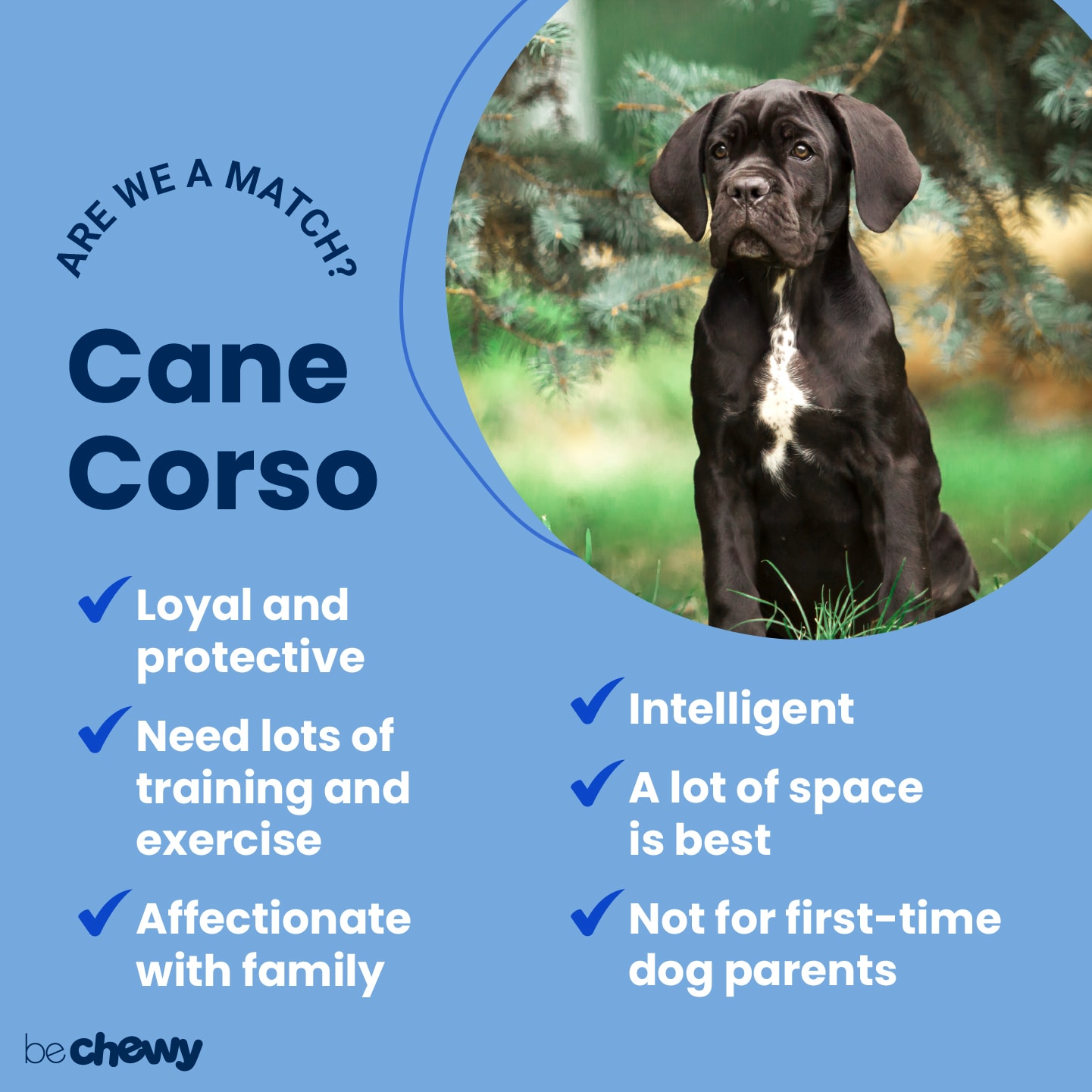
Top Takeaways
Cani Corsi are loyal and protective guardians who can be sweet and loving pets. They need consistent socialization and training throughout their lives to bring out their calm, affectionate side. But the added security of having a Cane Corso on your home team is worth the extra work. This is a serious dog best suited for serious dog lovers who are experienced and willing to commit a lot of time and energy to provide training, mental stimulation and exercise to their giant pup.
Expert input provided by Suzy Gray, BVetMed, ACVIM and Russell Hartstein, CDBC, CPDT-KA and owner of Fun Paw Care.
Breed characteristic ratings provided by veterinarian Dr. Sarah J. Wooten, DVM, CVJ, a veterinarian at Sheep Draw Veterinary Hospital in Greeley, Colorado; dog trainer and behavior consultant Irith Bloom, CPDT-KSA, CBCC-KA, CDBC, owner of The Sophisticated Dog, LLC, in Los Angeles; and certified animal behavior consultant Amy Shojai, CABC, in Sherman, Texas.
The health content was medically reviewed by Chewy vets.

Search for Adoptable Cane Corsos Near You
Female Names
- Luna
- Bella
- Nova
- Nala
- Athena
- Stella
- Xena
- Harley
- Lola
- Mia
Male Names
- Zeus
- Kane
- Enzo
- Odin
- Diesel
- Thor
- Loki
- King
- Apollo
- Bane
Share:
